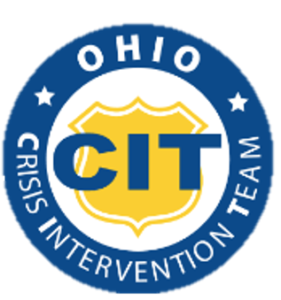Criminal Justice
Crisis Intervention Team 
Crisis Intervention Teams (CIT) are community-based programs that bring together law enforcement, mental health professionals, advocates, people living with mental illness and their families, and other partners to improve community responses to people experiencing mental health crises.
CIT is designed to bring local mental health systems, law enforcement agencies, advocates, people living with mental illness and their families, elected leaders, and other partners to the table to problem-solve and take responsibility for improving their local mental health crisis response system. CIT programs work to build crisis response systems where law enforcement plays a supporting role and responds only when the level of danger or criminal activity warrants their involvement. CIT programs also work to develop and strengthen an effective and accessible 24/7 crisis response system so that individuals in all communities can receive the help they need without contact with the justice system.
No one has a greater stake in the outcome of a mental health crisis than the person in crisis, followed closely by their family members. People with lived experience have valuable insight into how the crisis response system works and what helps make it better.
Only by engaging people with mental illness and their families can we build crisis response systems that people feel confident utilizing without fear of danger or incarceration. Opportunities for engagement include participation in steering committees, trainings, panels, community-based meetings, and more.
CIT partners are equal decisionmakers who solve problems together, bring resources to the table, and hold each other accountable. Mutual commitment, trust, and respect are the bedrock of strong partnerships. Three key partners that should meet routinely include law enforcement, mental health, and advocacy. Opportunities to collaborate with a wider array of partners include steering committees, case review, cross trainings, and more.
CIT is not just about how law enforcement responds to mental health crisis situations. It also addresses how mental health, criminal justice and other community support systems are involved in crisis response. CIT examines how systemic strategies and problems (like policies, services, or information sharing) contribute to crisis situations and their effective resolutions.
The Goals of OHIO CIT ProgramS
1. Improve the safety of everyone in situations when law enforcement officers interact with persons in crisis.
2. Improve outcomes when law enforcement officers interact with persons in crisis.
3. Increase understanding of, accessibility to, and improve responsiveness by the local crisis response system.
4. Divert persons in crisis from the criminal justice system to treatment alternatives when possible.
5. Transform the local crisis response system to use law enforcement officers as first responders only when there is an immediate or imminent threat to safety or a serious criminal concern.
Taken from pages 7 of Core Elements of the Ohio Crisis Intervention Team Programs document.
Contact
Phone: 330.325.6861
Email: cjccoe@neomed.edu
Ohio Criminal Justice Coordinating Center of Excellence
A NEOMED Coordinating Center of Excellence


